Reading Comprehension Teaching Resources
Explore printable worksheets, digital activities and more to teach reading comprehension strategies and skills in your elementary classroom. Created by teachers, for teachers, the teaching resources in this collection are curriculum-aligned and have undergone a careful review by a member of our expert teaching team.
You'll find editable versions to easily differentiate your instruction for individual students, plus a variety of options to make lesson planning easier this school year so your students will be able to identify the main idea of a text, draw inferences, remember key details and more.
New to teaching this portion of the English curriculum or just looking for fresh and engaging ways to teach reading comprehension strategies? Read on for a primer from our teacher team!
What Is Reading Comprehension?
We'll start at the beginning! Reading comprehension is a skill that's hard to overestimate in terms of its importance for elementary students to develop.
Defined as the ability to understand and interpret written language, reading comprehension involves the process of decoding text, extracting meaning from it, and then integrating that meaning with prior knowledge and understanding.
Not only does comprehension comprise the ability to recognize and understand individual words, but it also involves the ability to recognize patterns and relationships within sentences and paragraphs.
On top of that is the ability to make inferences and draw conclusions based on the information presented.
Yes, there's a lot packed in there!

How to Teach Reading Comprehension
To develop reading comprehension, students need a variety of language skills such as vocabulary knowledge, grammar and syntax, as well as cognitive processes such as attention, memory and critical thinking.
So how do you teach reading comprehension? Like many of those foundational skills we teach in elementary grades, this isn't something kids learn in a single lesson, unit or even one school year.
Teaching reading comprehension is going to stretch from kindergarten and first grade all the way through the rest of a child's academic career (at least on the pre-college levels).
That said, here are some activities to make use of as you approach teaching reading comprehension as an elementary teacher:
- Pre-Reading Activities — Brainstorming, KWL charts, prediction exercises and other "pre-reading" activities will help your students activate their prior knowledge, build background knowledge and set a purpose for reading. These are all key to developing their comprehension.
- During-Reading Strategies — Teaching your students to ask questions, summarize, visualize and make connections will give students the know-how they need to monitor their comprehension as they read.
- Post-Reading Activities — Reading comprehension doesn't stop when kids get to the last page of a text. It's only just beginning. That's why it's important to make sure your lesson plans include activities that help students deepen their understanding of the text and develop critical thinking skills. Examples of post-reading activities that can help build these skills include discussions, debates and written responses.
- Free Plan
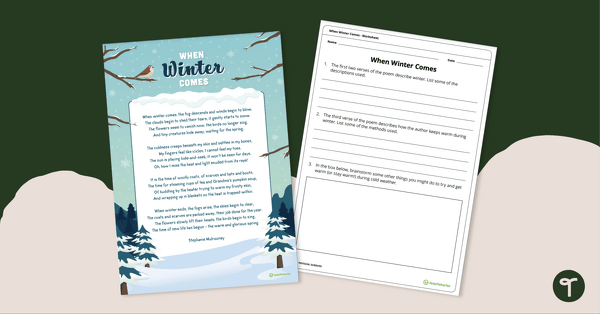
When Winter Comes - Poetry Analysis Worksheet
Printable poem for upper elementary students to practice analyzing poetry.
- Plus Plan
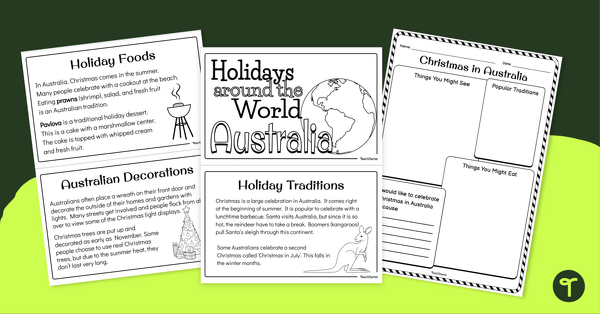
Holidays Around the World - Australia Mini Book
Introduce your students to Christmas in Australia with a printable mini book and graphic organizer.
- Plus Plan
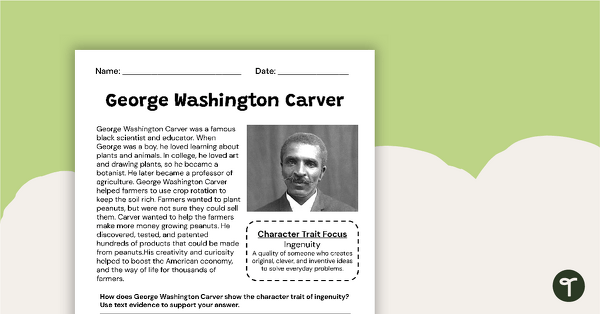
George Washington Carver Constructed Response Worksheet
Read and write about George Washington Carver using the RACES strategy for constructed response paragraphs.
- Plus Plan
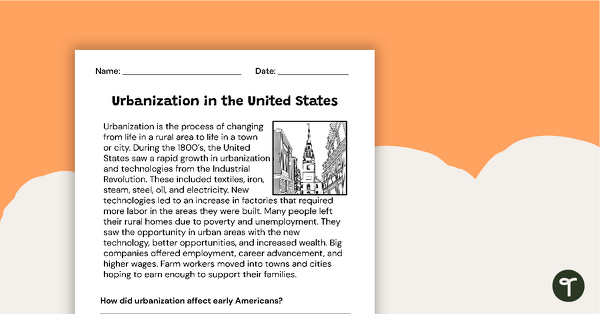
Urbanization Constructed Response Worksheet
Use this nonfiction constructed response worksheet to teach your students about urbanization.
- Plus Plan
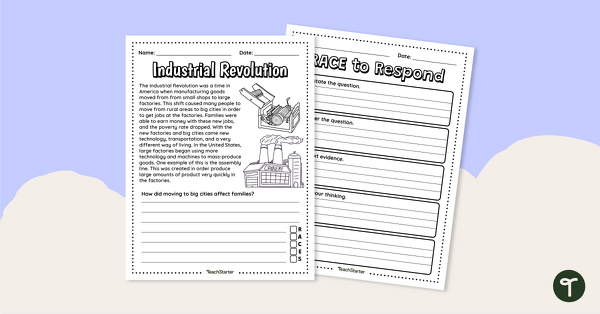
Industrial Revolution Worksheet - Constructed Response
Blend reading, writing, and history concepts surrounding the Industrial Revolution with a constructed response worksheet and graphic organizer.
- Plus Plan
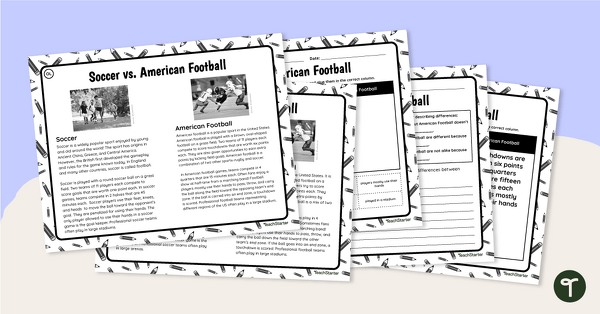
Soccer vs. Football -Differentiated Paired Passage Worksheets
Differentiate reading instruction with nonfiction texts, compare and contrast activities, and response to text writing opportunities.
- Free Plan
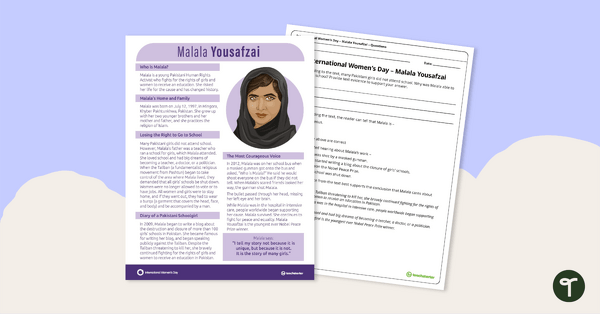
Inspirational Woman Profile: Malala Yousafzai – Comprehension Worksheet
A comprehension task to use when learning about Malala Yousafzai.
- Free Plan
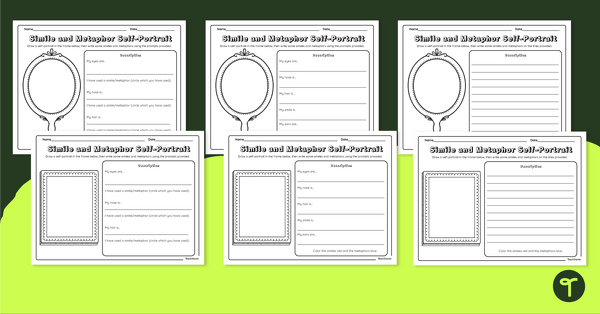
Simile and Metaphor Self-Portrait Worksheet
Teach students about similes and metaphors by asking them to describe... themselves!
- Free Plan
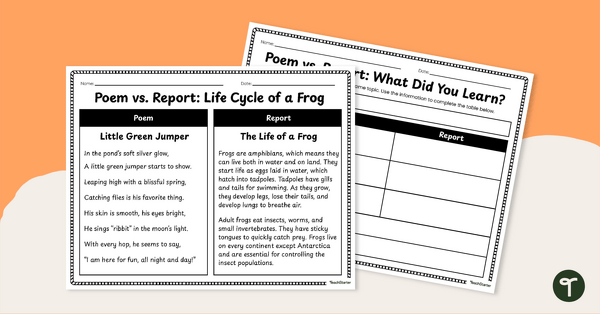
Comparing Texts on the Same Topic Worksheet
Explore the purpose of poem texts and report texts with clear guidance that helps students' interpretive skills.
- Free Plan
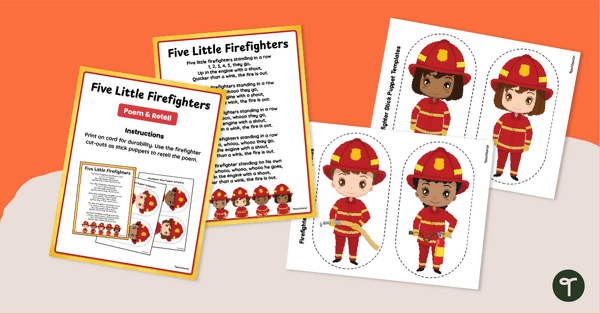
Five Little Firefighters Poem Retell Activity
Read and retell the ‘Five Little Firefighters’ poem with a printable chart and stick puppet characters.
- Plus Plan
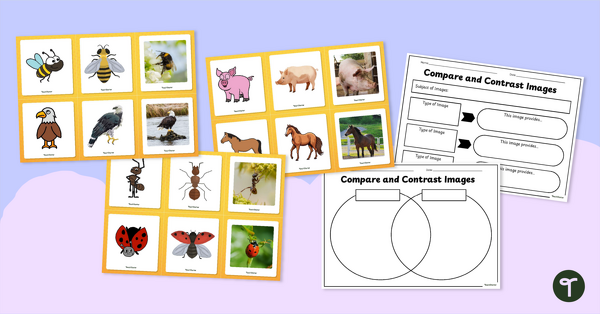
Compare and Contrast Images Activity Pack
Boost visual literacy and critical thinking in your classroom with this Compare and Contrast Images Activity Pack.
- Plus Plan
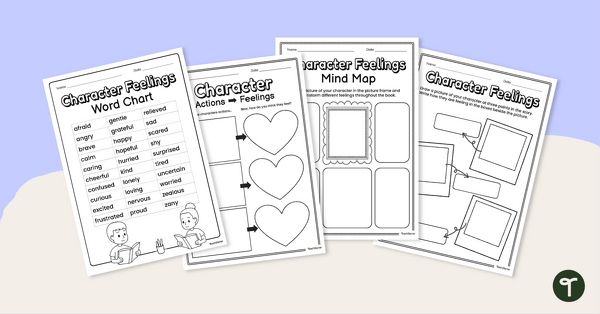
Character Emotions Chart and Worksheets
Explore character emotions in stories using this Character Emotions Chart and matching character Graphic Organizers
- Plus Plan
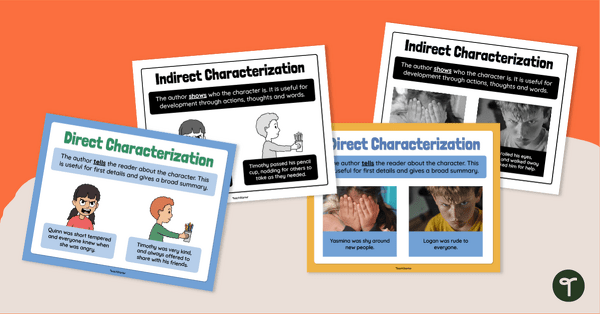
Direct and Indirect Characterization Anchor Chart
Reference a direct and indirect characterization anchor chart to teach your students the difference between types of characterization.
- Plus Plan
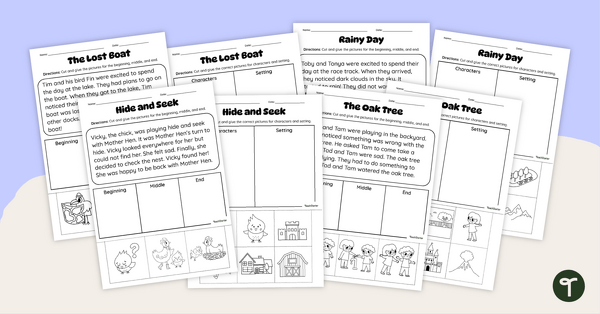
Beginning, Middle End Worksheets
Explore the main structure and story elements in a short story with these beginning, middle and end worksheets.
- Plus Plan
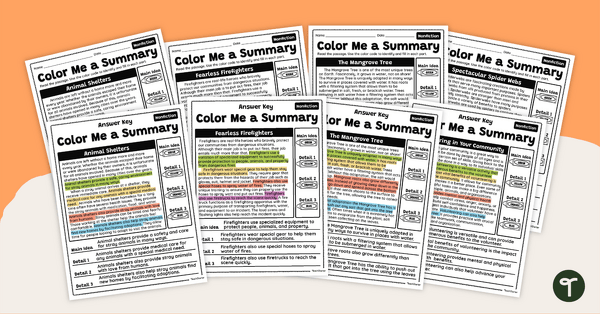
Color-Coding Summarizing Nonfiction Text Worksheets
Practice summarizing small nonfiction texts with this fun color-coding set of worksheets.
- Plus Plan
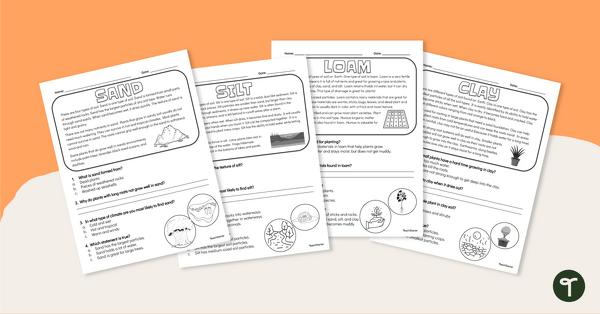
Types of Soils – Comprehension Worksheets
Explore the properties of sand, silt, loam and clay with a set of 4 reading passages with accompanying comprehension questions.
- Free Plan
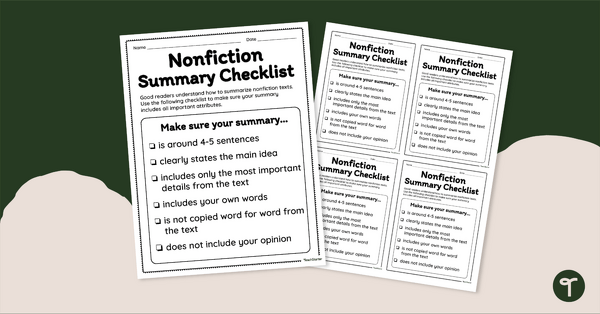
Nonfiction Summary Checklist
Give your students a checklist when summarizing nonfiction texts to make sure they include everything required.
- Free Plan
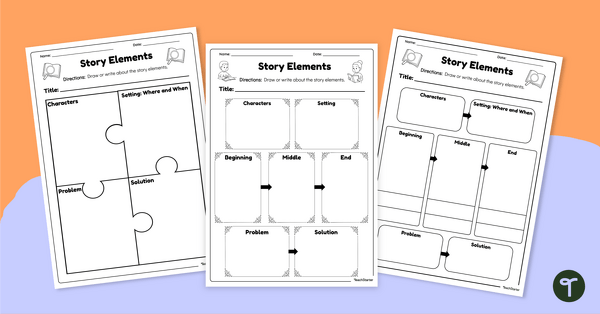
Story Elements Graphic Organizers – Portrait
Encourage your students to write and draw about various story elements with this set of differentiated graphic organizers.
- Free Plan
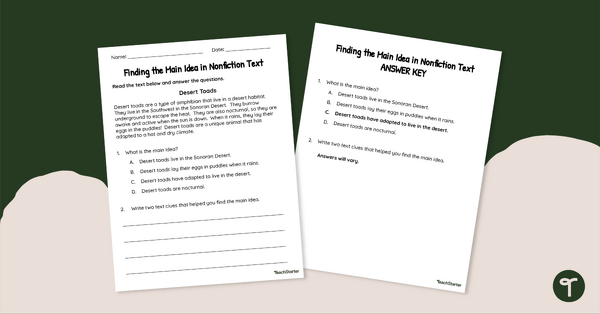
Finding the Main Idea in Nonfiction Text Worksheet
Identify supporting evidence for the main idea of an informational text passage and answer the comprehension questions.
- Plus Plan
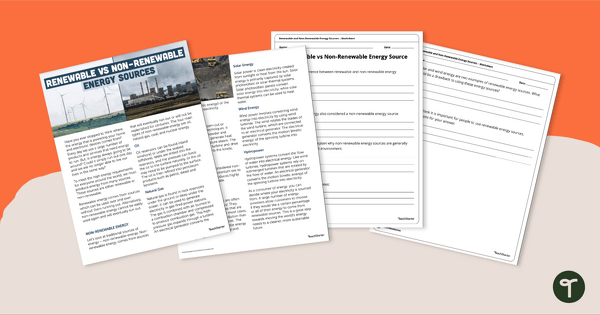
Renewable vs. Nonrenewable Energy Sources Worksheets
Discover the difference between renewable and nonrenewable energy sources with a comprehension passage and worksheet.
- Plus Plan
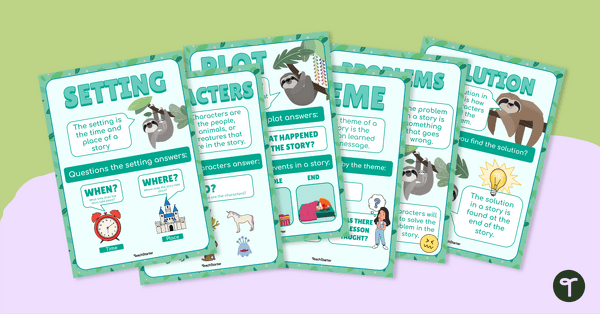
Story Elements Anchor Charts - Sloth-Themed Posters
Display these cute sloth-themed story elements anchor charts when learning about narrative texts.
- Plus Plan
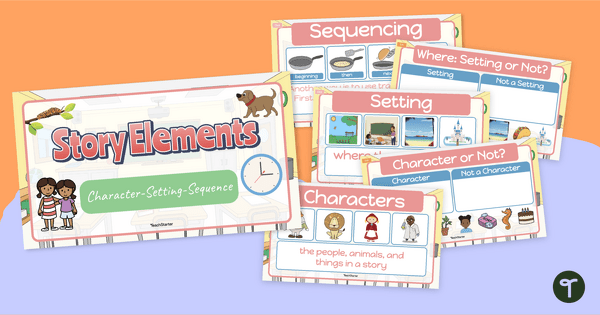
Kindergarten Story Elements - Instructional Slides
Introduce your kindergarten and first-grade students to the elements of a story using this interactive Google Slides teaching presentation.
- Plus Plan
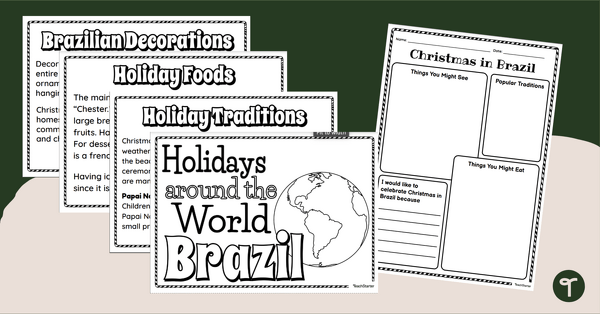
Holidays Around the World — Brazil Mini Book
Introduce your students to Brazil’s Christmas traditions and decorations with a printable Christmas Around the World Mini Book.
- Free Plan
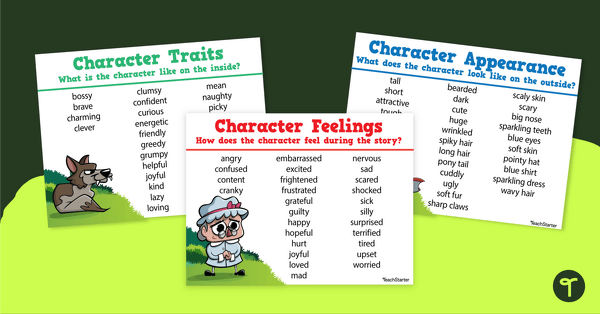
Character Anchor Charts - Traits, Feelings, and Appearances
A set of 3 posters depicting words and phrases that can be used to describe a character traits, feelings and appearance.
- Free Plan
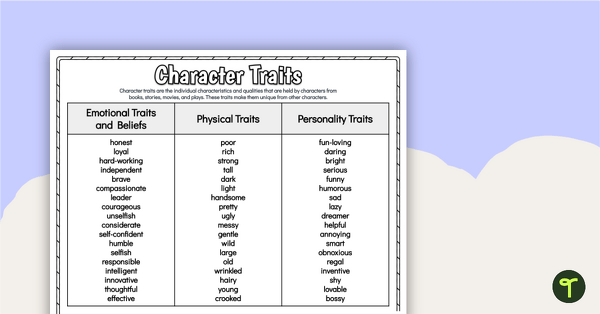
Free Character Traits List
Teach your students to analyze characters more effectively by providing them with a list of character traits.
- Free Plan
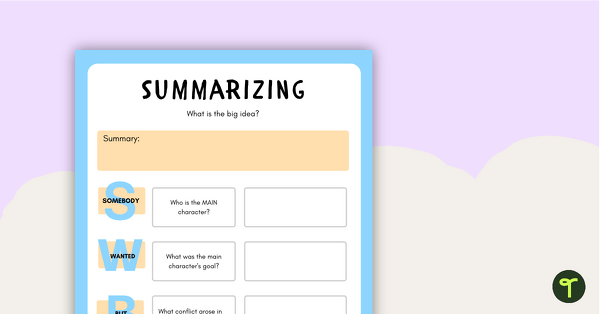
S.W.B.S.T. Summarizing Graphic Organizer
Use this printable SWBST strategy graphic organizer with students to write a summary for a fictional piece of text.
- Free Plan
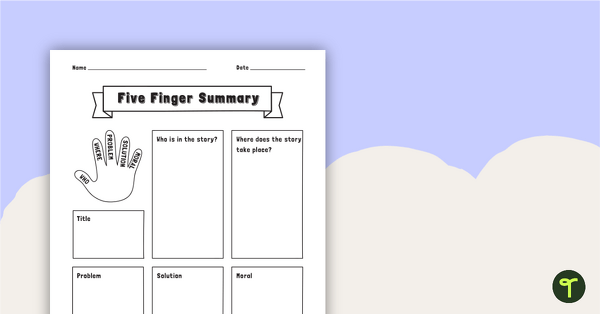
Five Finger Summary - Graphic Organizer
A graphic organizer for students to use to summarize a fiction text.
- Free Plan
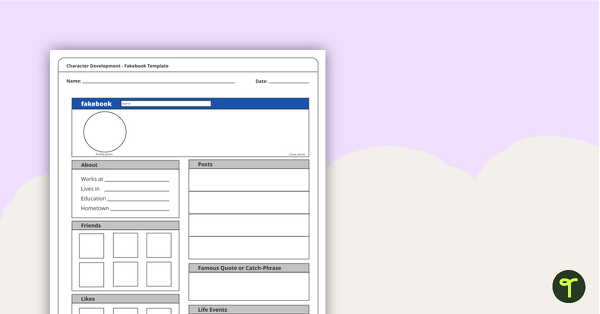
Character Development – Fakebook Page Worksheet
Use research and creative writing skills to design a social media profile for fiction or nonfiction persons.
- Plus Plan
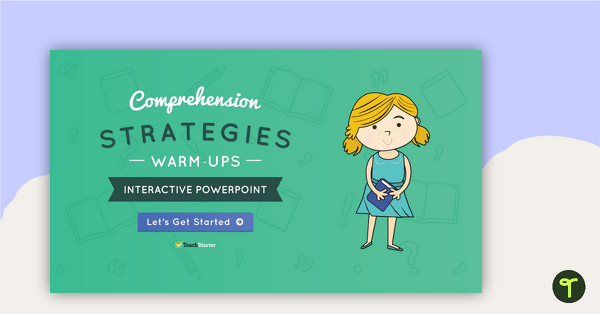
Comprehension Strategies – Interactive PowerPoint
An engaging 44 slide interactive PowerPoint to use in the classroom when introducing comprehension strategies.
- Plus Plan
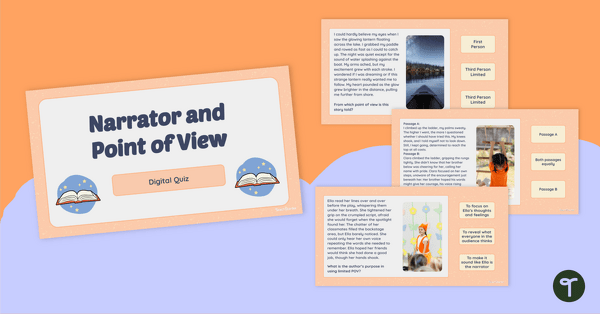
Narrator and Point of View Digital Quiz
Discover how narrator and point of view can be taught in a fun and engaging way with this interactive quiz designed to help elementary students become confident readers and critical thinkers.
- Plus Plan
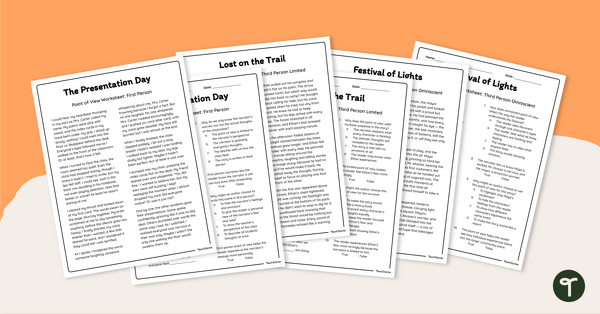
Narration and Point of View Worksheets
Use these narration and point of view comprehension passages to help students explore different narrative voices in literary texts.
- Plus Plan
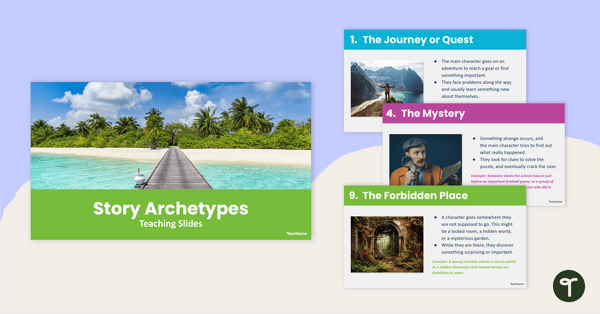
Story Archetypes Teaching Slides
Teach story archetypes with this engaging slide deck that introduces students to ten of the most common plot patterns in literature.
- Reading Comprehension Worksheets
- Reading Comprehension Templates
- Reading Comprehension Posters
- Reading Comprehension Games
- Reading Comprehension Flashcards
- Reading Comprehension for Pre-K
- Reading Comprehension for Kindergarten
- Reading Comprehension for 1st Grade
- Reading Comprehension for 2nd Grade
- Reading Comprehension for 3rd Grade
- Reading Comprehension for 4th Grade
- Reading Comprehension for 5th Grade
- Reading Comprehension for 6th Grade